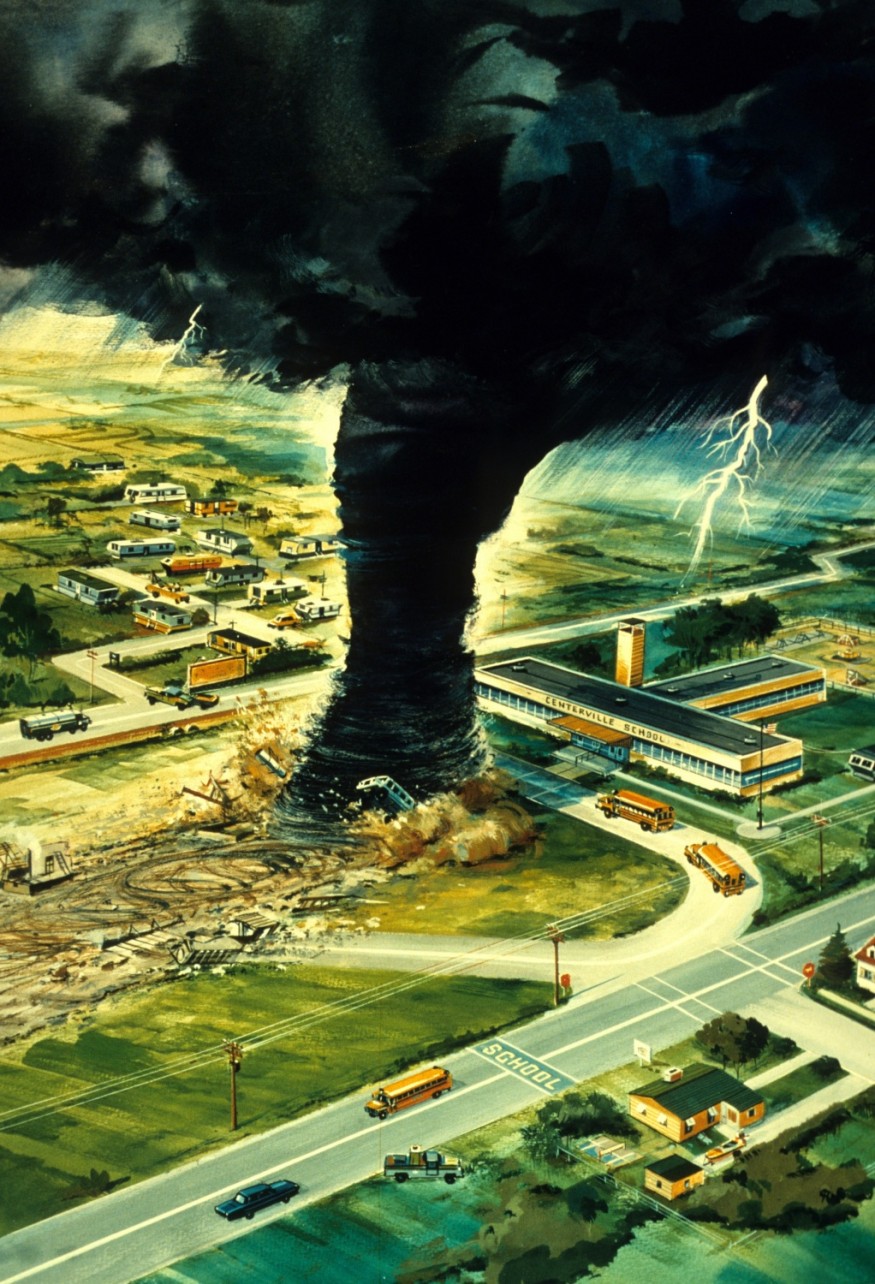Global warming has been an issue for a half century and has been creating unusual weather conditions that we cannot always anticipate. In addition to the possibility that it will devastate earth life, her are new words we should learn, in order to monitor our fall into climatic disaster.
Rising temperatures have not only increased the severity and frequency of torrential downpours and extreme weather, but they have also produced more new scientific names for unusual or unique weather events.

The New Words
Firenado
Occur when blistering heat and powerful winds rise in tornado-like columns above out-of-control wildfires. According to scientists, Australia and California have seen plenty of these vertical flame-thrower-like tornadoes.
Dry thunderstorms
In drought-stricken areas such as the southwestern United States are a great tease, bringing thunder and lightning but little rain. The air underneath these high-altitude light shows is so dry that any moisture created dissolves on the way back down.
Pyrocumulonimbus
A smoke-infused clouds that darkened Australian skies during the 2019-2020 Black Summer or 'urban heat islands' in major cities throughout the world that are a few of degrees Celsius hotter than neighboring countries.
Wet-bulb
Occur when the temperature and humidity are too high for perspiration to evaporate, wet bulb conditions result. If the temperature and humidity both surpass 95 degrees Fahrenheit, such circumstances can be deadly to humans.
Savannafication
A kind of vegetation that thrives in hot, it is a rise in algal blooms, seasonally dry climates and is distinguished by an open tree canopy (scattered trees) over a continuous tall grass undergrowth (the vegetation layer between the forest canopy and the ground). Sometimes known as "sea snot," and one phenomenon that cannot be attributed to climate change.
Flight shaming
Eco-conscious groups are promoting the flight shame movement, the goal of flight shame is to persuade people to choose more environmentally friendly modes of transportation, such as a boat, rail, or Greta Thunberg, a young activist, popularized flight shaming and encouraged Greenpeace and the Extinction Rebellion to spread the message.
Read also: "Dead Fishes Everywhere": Red Tide Turned Florida Coast Toxic, Threatening Marine Ecosystem
Climate Change wreaking havoc
Climate change is one of the most pressing issues confronting the world today. Long-term changes in weather patterns or average temperatures are examples of climate change. Weather patterns are shifting, which is producing issues for many individuals. This indicates that average temperatures will rise, rainfall will increase, and the number of frost days will decrease. More severe weather, water shortages in the east during the summer, increased floods, and effects on plants, animals, and marine life are all possible in the future.
Climate Change is wreaking havoc on people's lives, businesses, and communities all across the world. It is an issue for everyone, but in all nations, the people and communities who are already disadvantaged will bear the brunt of the consequences. The most vulnerable individuals in any community will have the most difficulty dealing with the impacts of extreme weather.
© 2025 NatureWorldNews.com All rights reserved. Do not reproduce without permission.





